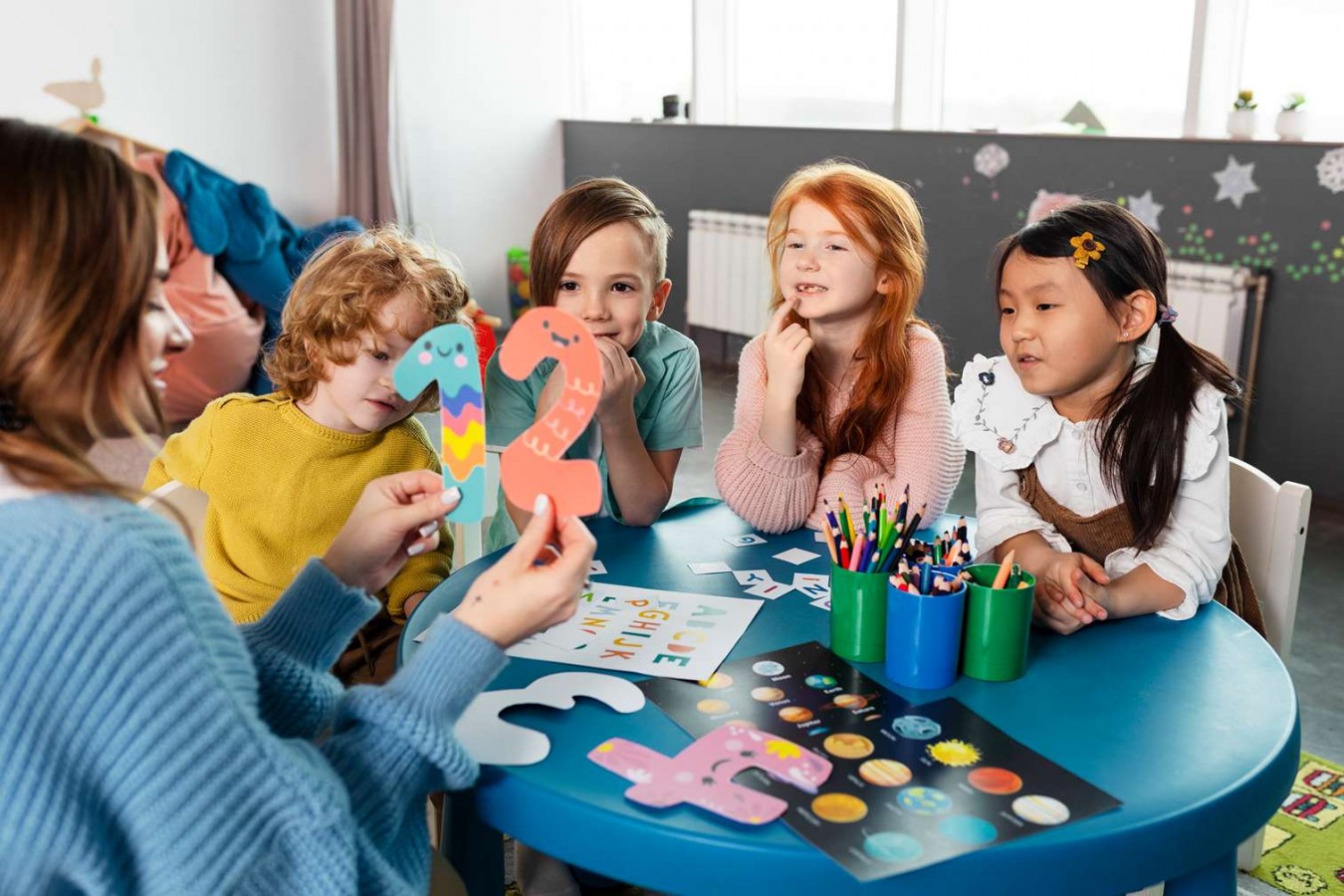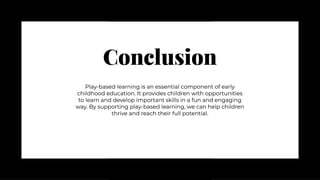
Introduction to Play-Based Education
Imagine a classroom filled with laughter, creativity, and the sound of little feet running around. This is not just playtime; it’s play-based education in action! It redefines how children learn by blending fun with fundamental skills. In this dynamic approach, learning becomes an adventure rather than a chore. Children explore concepts naturally through games and activities, fostering a love for knowledge that lasts a lifetime.
As we dive into the world of learning through play, we’ll uncover its significance and benefits for young minds. From early childhood settings to elementary classrooms, let’s discover why incorporating playful experiences is essential for building strong foundations in education.

Benefits of Learning Through Play
Learning through play fosters creativity and imagination. Children explore their interests freely, discovering new concepts in a fun way. This exploration leads to better retention of knowledge.
Social skills also thrive in playful environments. Kids learn teamwork, communication, and empathy while interacting with peers during games or collaborative activities. These essential life skills set the stage for future relationships.
Cognitive development is another benefit of play-based learning. Through hands-on experiences, children enhance problem-solving abilities and critical thinking skills. They engage with challenges that develop resilience and adaptability.
Moreover, physical activity plays a crucial role in this approach. Active play promotes motor skill development and overall health, contributing to well-rounded growth.
Emotional regulation improves as kids navigate successes and failures during playtime. They learn to manage feelings like frustration or joy—valuable lessons that transcend the classroom setting.
Incorporating Play into Early Childhood Education
Incorporating play into early childhood education transforms the learning experience. It allows children to explore their environment and discover new concepts organically.
Play-based activities can include everything from imaginative role-playing to hands-on science experiments. These experiences ignite curiosity and foster critical thinking skills essential for lifelong learning.
Teachers can create interactive spaces that encourage collaboration among peers. This social engagement not only enhances communication but also builds relationships, helping kids develop emotional intelligence.
Integrating art, music, and storytelling into daily routines enriches the curriculum further. Children express themselves freely while developing motor skills and creativity along the way.
By observing how children engage in play, educators gain insights into individual needs and interests. Tailored approaches ensure a more personalized educational journey for every child involved in these foundational years of growth.
Implementing Play-Based Learning in Elementary Schools
Implementing play-based learning in elementary schools can transform the classroom atmosphere. Teachers can create dynamic environments where students thrive through exploration and creativity.
Classroom setups might include interactive centers filled with materials that encourage hands-on activities. Think building blocks for engineering concepts or art supplies to express ideas visually.
Integrating subjects with play is key. For instance, a math lesson could involve games that use counting and sorting objects, making numbers come alive in an engaging way.
Collaboration among students naturally occurs during these activities. They learn teamwork while solving problems together, developing social skills along the way.
Teachers serve as facilitators, guiding students rather than dictating their learning journey. This approach fosters independence and critical thinking.
Regular assessments also adapt to this model by observing student interactions and understanding rather than relying solely on tests. Emphasizing growth over grades encourages a love of learning early on.

Challenges and Criticisms of Play-Based Education
While play-based education offers numerous advantages, it also faces its share of challenges and criticisms. Some educators worry that this approach may compromise academic rigor. They fear that too much focus on play could lead to gaps in essential knowledge and skills.
Another concern is the lack of standardized assessments for measuring progress in a play-centered environment. Traditional testing methods struggle to evaluate outcomes effectively when learning occurs through exploration and creativity.
Additionally, not all parents understand or appreciate the value of learning through play. They often expect structured lessons that align with conventional standards, creating tension between home expectations and classroom practices.
Resource limitations can also hinder effective implementation of play-based strategies. Many schools lack adequate materials or training for teachers to integrate playful experiences meaningfully into their curricula.
The Future of Play-Based Education
The future of play-based education looks promising as more educators recognize its value. Schools are beginning to integrate play into their curricula, transforming traditional classrooms into vibrant learning environments.
Technology also plays a role in this evolution. Interactive tools and games make lessons engaging, allowing children to learn through exploration and creativity.
Moreover, research continues to support the effectiveness of play in enhancing cognitive and social skills. This evidence encourages policymakers to advocate for play-based approaches across various educational settings.
As awareness grows, parents are likely to demand more opportunities for their children to learn through play. The movement towards holistic education is gaining momentum, emphasizing that joyful learning fosters lifelong curiosity.
In this dynamic landscape, collaboration between teachers, parents, and communities will be vital in shaping a robust framework for future generations focused on the importance of playful learning experiences.
Conclusion: Why Play Should Be an Essential Part of Education
Play is more than just a pastime; it’s a critical element of education. The importance of integrating play into learning cannot be overstated. It fosters creativity, enhances social skills, and encourages problem-solving among children. Through engaging in playful activities, students develop not only academic skills but also emotional resilience.
As we look to the future of education, prioritizing play-based approaches can lead to enriched learning experiences that cater to diverse needs. By creating environments where learning through play thrives, educators promote holistic development in young learners.
The road ahead may require adjustments and considerations about the structure of our educational systems. However, embracing play as an essential component will undoubtedly shape well-rounded individuals prepared for life beyond the classroom. Encouraging this form of education isn’t merely beneficial; it’s vital for nurturing curious minds that are eager to explore the world around them.




Leave a Reply